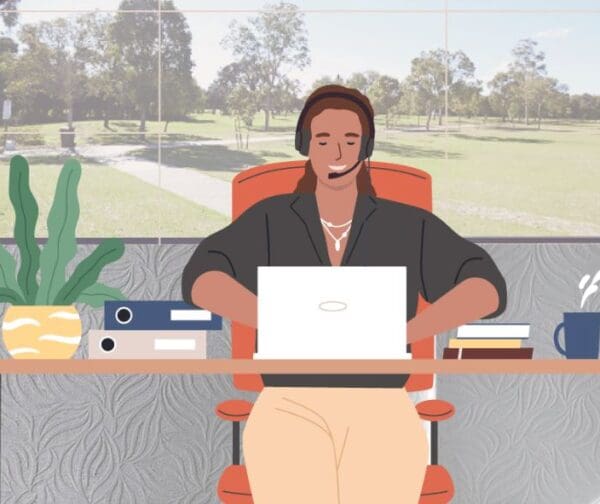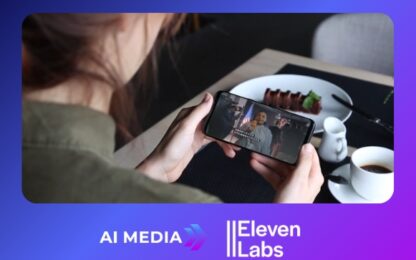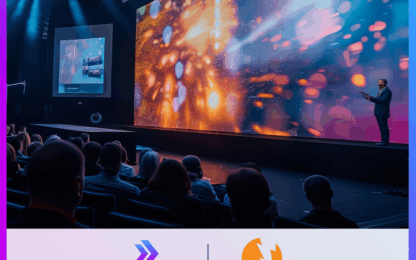
A Day in the Life of a (Live!) Captioner
A Day in the Life of a (Live!) Captioner
Have you ever wondered what goes on behind the captions that appear at the bottom of your screen?
Does a computer make them? Does a human make them?
The answer is, both! … It depends what type of captions you are seeing.
At Ai-Media, we make all of them – closed captions, live captions, streaming captions, captions for virtual meetings, along with plenty of other services.
Among our most fast-paced and dynamic services is live captioning, which are captions delivered to screens in real time.
To keep things running smoothly, coordinators run teams of captioners, and captioners in various parts of the world work at different times of the day to deliver captions to screens 24/7.
The job is complex and demanding, not to mention fascinating! Here’s a little insight into a day in the life of an Ai-Media live captioner. We spoke to Live Enterprise Coordinator, Sage Parker, to learn more about it.
Planning the day (or night!)
Most captioners will not work a solid eight-hour work day!
Captioning shifts are varied and can happen at different times. A captioner might have a single session and then a few hours’ break, or they might have back-to-back sessions for several hours at a time.
“The variation in hours. That was my favorite thing when I was captioning,” says Sage.
So a captioner’s schedule will look very different, depending on the day.
First things first: Wake up and check the schedule
Depending on the schedule they have planned the day before, a captioner will wake up, and once they start their day, check their schedule to see if it has changed overnight.
We try to accommodate last-minute bookings wherever we can, which is why captioners’ schedules often change!
Sometimes, last-minute sessions will have been added and others may have been cancelled.
Set up for session #1
The captioner will then set up for their first session of the day.
They will do between 15 minutes and one hour of preparation before the session starts, depending on the complexity of the subject matter, session agenda and number of speakers.
For higher complexity sessions, the captioner will research the topic area of the session, read speaker biographies, investigate technical information and terms. It helps if the client has provided some information in advance of the session.
Types of sessions: Science lectures to surrealist theatre!
There is a huge variety of content in the sessions that Ai-Media produces live captions for.
Live captioners do a lot of work on university lectures on various subjects, from psychology and literature to computer science. They also caption a lot of work meetings on Zoom, Microsoft Teams and other platforms, especially during the new era of widespread remote work.
Captioners are also doing more and more press conferences for government health departments about COVID-19. These are often live streamed to social media.
Ai-Media also live captions for clients ranging from the World Economic Forum, large film festivals, and some smaller live theatre sessions. These can range from Shakespeare to wacky surrealist plays!
The amazing art of voice captioning
Most live captioners at Ai-Media are ‘voice captioners’. This means that the method they use to produce captions is as follows:
- The captioner receives the audio from the live session;
- They immediately respeak what is being said it into a microphone as it happens;
- Their voice is read by special voice-reading software;
- From the respoken audio, the text is generated as captions on the screen.
Before your session, your captioner will have ‘taught’ their voice-reading software to know the common terms that you might use during this session. This includes any technical words or speaker names, for example. In this way, the software grows its vocabulary over time!
To voice-caption effectively, captioners need to have a high level of skill. They need to enunciate each word clearly, hitting consonants where they appear to make sure the word is interpreted correctly by the software. Some captioners call this their ‘robot voice’! They will also need to read punctuation, formatting, speaker tags and capitalization out loud.
Some Ai-Media captioners are not voice captioners, but stenographers (or ‘stenos’), and others use a special typing software to create captions. Find out more about them in this article!
Session goes live
Once everything is prepared for lift-off, it’s time to go live!
Unless it is a live stream, your captioner will generally not be able to see your session, only hear the audio. Clients can talk with the captioner in the chat function of whichever platform they are using for their session.
Speaking for voice captioning is not like regular speaking! It puts more pressure on the human voice. For this reason, a captioner working on a ‘standard’ session will switch with another captioner every hour. For ‘complex’ sessions, there will be two captioners working on the voice captioning at the same time, swapping every 15 minutes to preserve their voices and to rest.
Once the session is finished, a transcript of the captions from the session will be made available for the client to reference!
Stories of impact
There are many stories we have at Ai-Media about the impact of captions on people’s lives, especially those that are deaf, hard-of-hearing, or who have another disability.
“It means a lot to me, knowing that we’re having a tangible benefit in people’s lives,” says Sage about captioning.
“When I first started captioning for Ai-Media in 2011, we were captioning for high schools, and our first two students signed up for our live captions on Ai-Live. They were doing quite poorly in class because they just couldn’t access the content.
“We captioned for them all the way from Year 9 until completing Year 12. I was captioning for them on their final day, and one of them said that they wouldn’t have graduated if it weren’t for Ai-Media. They both graduated with excellent marks! We captioned for one of them throughout university as well. Last we heard, they are out there living their best lives, doing the work they want to do.”
Live captioning and machine translation
If you want to know more about Ai-Media’s world-class live captioning service, get in touch! We also offer many other kinds of captioning, as well as machine translation, which can immediately translate your session into multiple languages at once.


